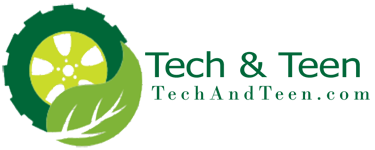Facebook tries to make fool Bangladeshi internet user and lure them through internet.org campaign. You already have learned, Internet.org will launch in Bangladesh soon and it will give some basic website browse free of cost, that means if you browse through internet.org app the certain provider will not cut data cost. The Mobile operator Robi will bring the service and initially 29 website will be offered through this app. But here raises a question of Net Neutrality, which is already make a debate in India.
The TimesOfIndia writes, Net neutrality: Facebook trying to make users think Internet.org is free internet.
Internet.org has been widely panned as being against the principles of net neutrality as it allows users to access only websites that have signed up for the platform, while blocking access to those that did not join the Facebook initiative.
What is Net Neutrality?
Net Neutrality is the Internet’s guiding principle: It preserves our right to communicate freely online. This is the definition of an open Internet.
Net Neutrality means an Internet that enables and protects free speech. It means that Internet service providers should provide us with open networks — and should not block or discriminate against any applications or content that ride over those networks. Just as your phone company shouldn`t decide who you can call and what you say on that call, your ISP shouldn`t be concerned with the content you view or post online.
Without Net Neutrality, cable and phone companies could carve the Internet into fast and slow lanes. An ISP could slow down its competitors` content or block political opinions it disagreed with. ISPs could charge extra fees to the few content companies that could afford to pay for preferential treatment — relegating everyone else to a slower tier of service. This would destroy the open Internet.
Why is Net Neutrality important for businesses?
Net Neutrality is crucial for small business owners, startups and entrepreneurs, who rely on the open Internet to launch their businesses, create a market, advertise their products and services, and distribute products to customers. We need the open Internet to foster job growth, competition and innovation.
Net Neutrality lowers the barriers of entry for entrepreneurs, startups and small businesses by ensuring the Web is a fair and level playing field. It’s because of Net Neutrality that small businesses and entrepreneurs have been able to thrive on the Internet. They use the Internet to reach new customers and showcase their goods, applications and services.
No company should be able to interfere with this open marketplace. ISPs are by definition the gatekeepers to the Internet, and without Net Neutrality, they would seize every possible opportunity to profit from that gatekeeper control.
Without Net Neutrality, the next Google would never get off the ground.
Why is Net Neutrality important for communities of color?
The open Internet allows communities of color to tell their own stories and to organize for racial and social justice.
The mainstream media have failed to allow people of color to speak for themselves. And thanks to economic inequality and runaway media consolidation, people of color own just a handful of broadcast stations. The lack of diverse ownership is a primary reason why the media have gotten away with portraying communities of color stereotypically.
The open Internet gives marginalized voices opportunities to be heard. But without Net Neutrality, ISPs could block unpopular speech and prevent dissident voices from speaking freely online. Without Net Neutrality, people of color would lose a vital platform.
And without Net Neutrality, millions of small businesses owned by people of color wouldn`t be able to compete against larger corporations online, which would further deepen the economic inequality in our nation’s most vulnerable communities.
Interestingly, Facebook tricks users in the campaign by not mentioning the controversial Internet.org programme anywhere until they reach the Change.org petition. Even then, there is a possibility that many may not read the whole petition and sign up to support the campaign without realizing it is actually against the spirit of free internet.
In this petition, Facebook does not mention that it will throttle access to the internet for those who want to open websites beyond the 32 websites that have participated in the Internet.org initiative. Many organizations, including The Times Group, which had earlier signed up for Internet.org have since withdrawn from the programme.

